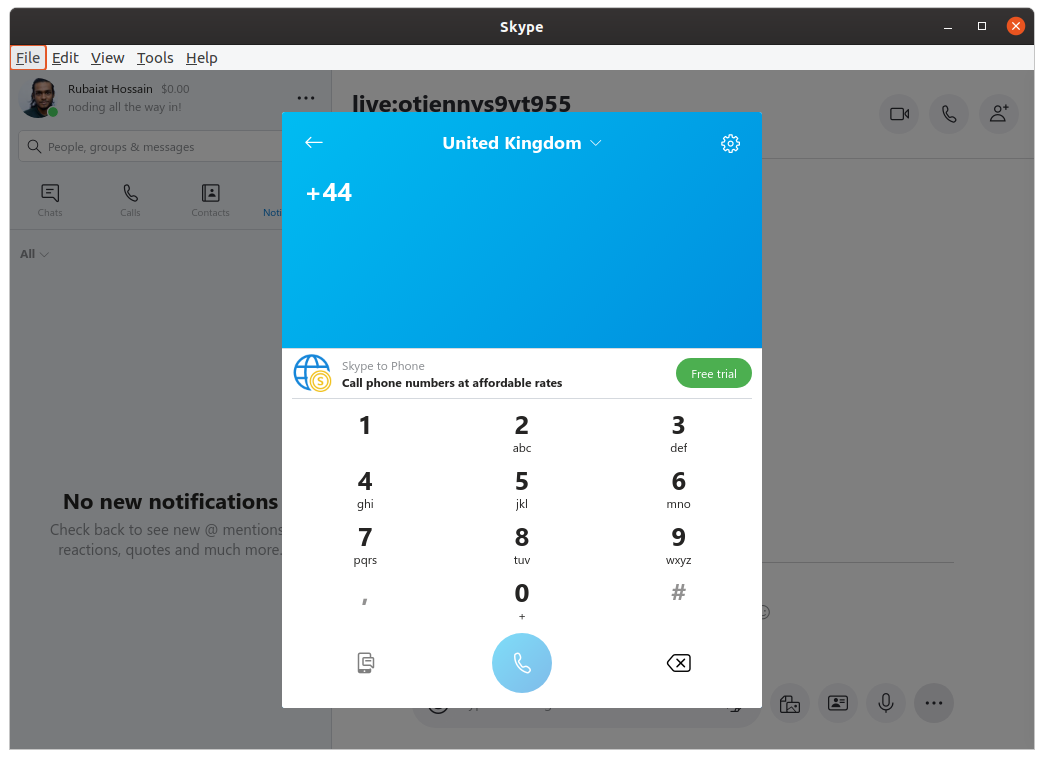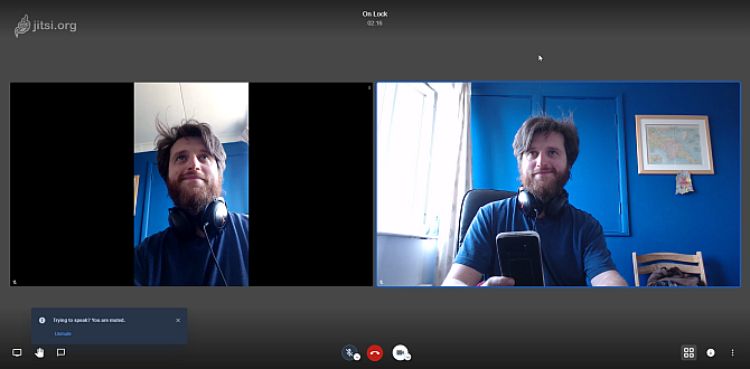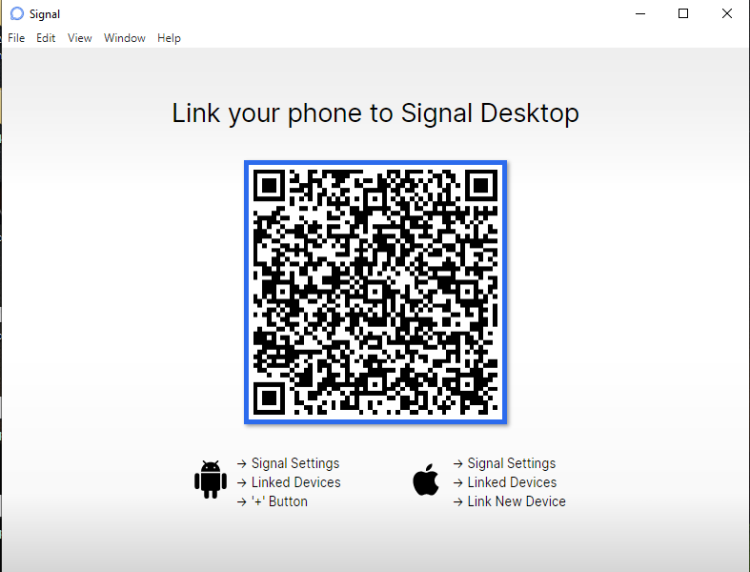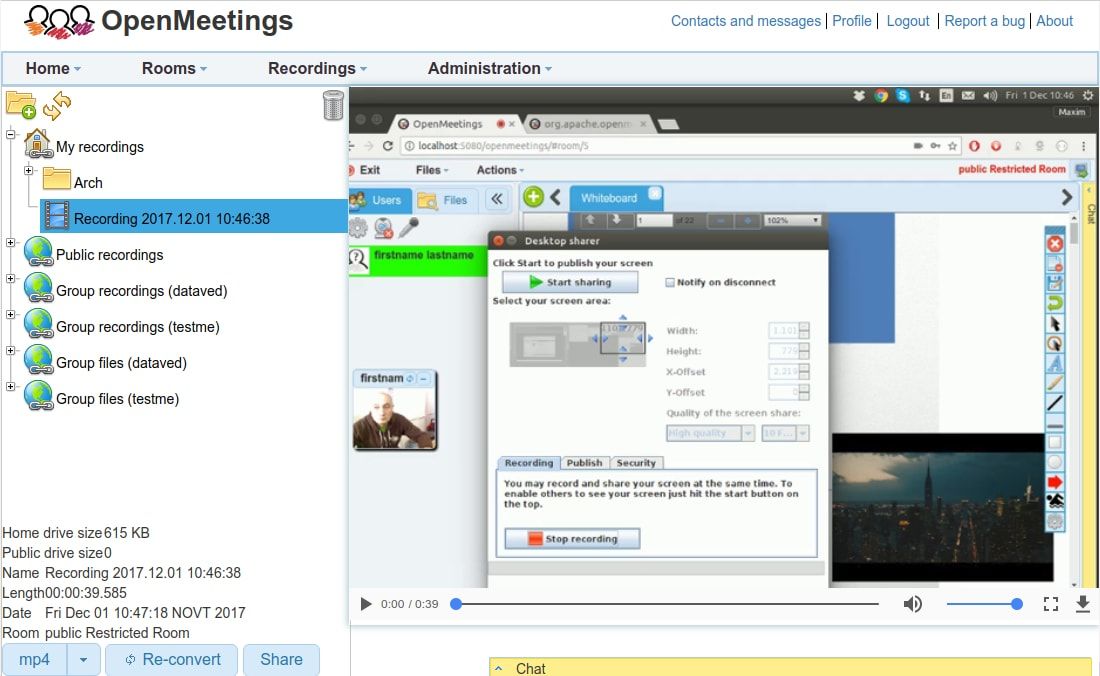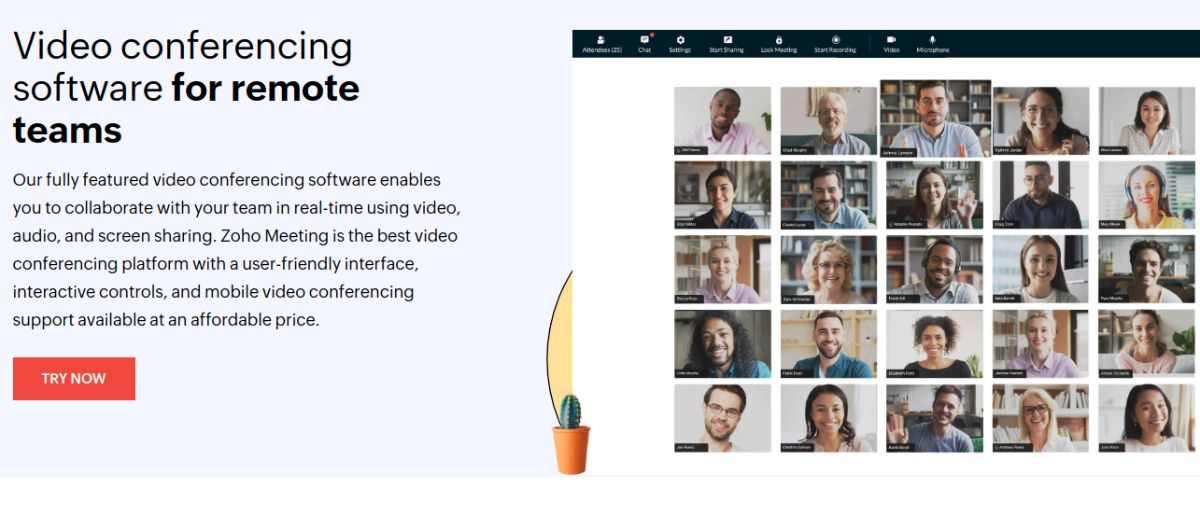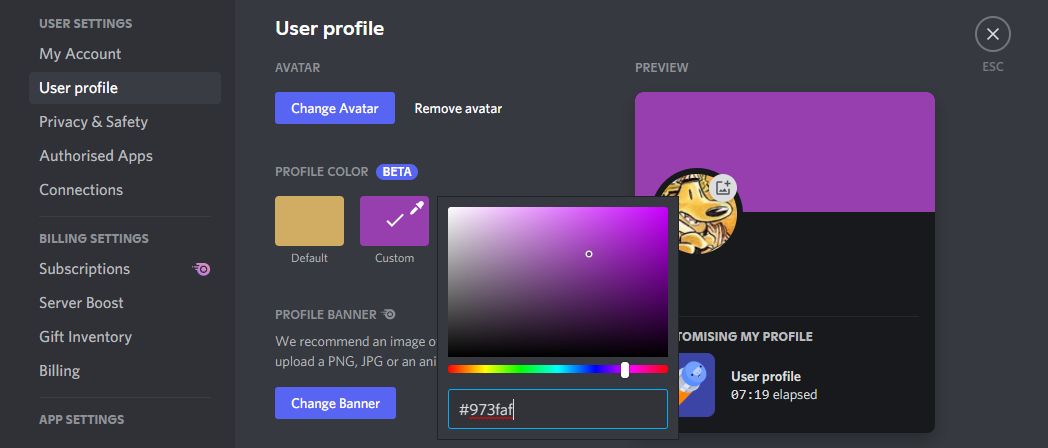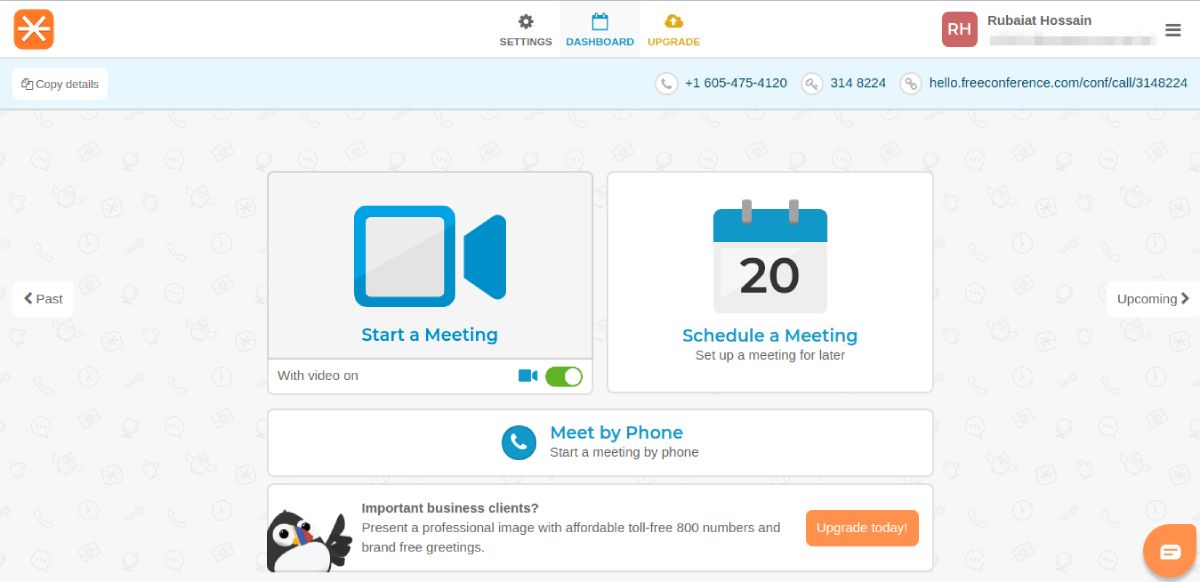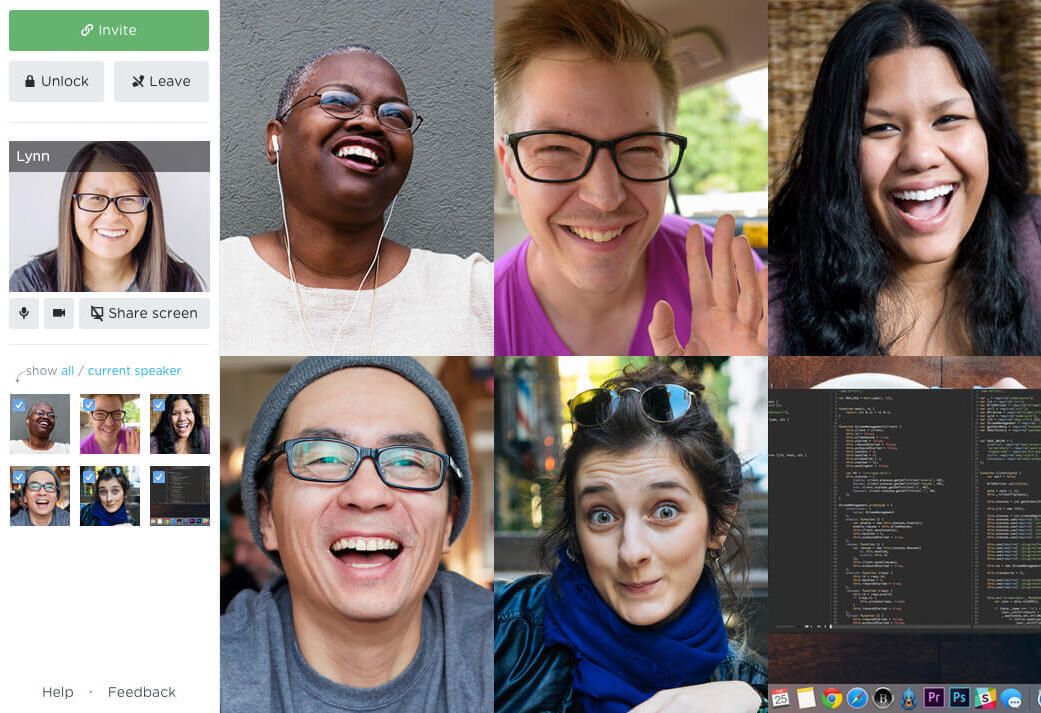For freelancers and employees who regularly work from home, remote communication is one of the many things that need to be taken care of. Video conferencing has now replaced in-office meetings for many of us. Tools like Zoom and Skype have seen a massive increase in growth.
Luckily, there isn't any shortage of quality video conferencing software for Linux. This guide covers some of the best Linux video conferencing apps to help developers and employees stay on top of their work goals.
1. Zoom
Zoom is a powerful video conferencing solution that boasts a compelling set of features. It has enjoyed exponential growth since the pandemic hit-off. Although a paid software, Zoom offers a basic plan with the ability to host unlimited free meetings.
Plus, it's available for all modern platforms, including Linux, Mac, Windows, and smartphones. This, coupled with Zoom's flexible pricing plans, make it one of the best Linux video conferencing software for professionals.
2. Skype
Skype is arguably one of the best video conferencing software for Linux users. It has been around for a long time and continues to be a big player in the VoIP and videotelephony industry. Skype's feature list includes voice calls, video calls, instant messaging, and screen sharing.
A key benefit of Skype is that it's truly cross-platform. So, you can use the same app on your computer, smartphone, and even Xbox or Alexa devices. Plus, the Skype client for Linux offers a seamless user experience. Users can download the DEB, RPM, or snap package to install the app on their system.
3. Jitsi Meet
Jitsi is a brilliant open-source project for creating and deploying custom video conferencing solutions. The core of this software suite consists of Jitsi Meet and Jitsi Videobridge. They provide high-quality audio and video calls over the web and minimize communication latency to the bare minimum.
Jitsi's main features include HD calls, end-to-end encryption, high scalability, screen sharing, and unlimited free meetings. This makes Jitsi a great choice for people looking for free and open-source video conferencing software.
4. Signal
Signal is an instant messaging service that offers video conferencing alongside many additional features. It's a cross-platform solution with stable clients available for Linux, Windows, Mac, iPhone, and Android. Signal puts great emphasis on security and offers end-to-end encryption for all video calls.
Other notable features include an immersive no-ad experience, easy screen sharing, link previews, and support for proxy servers. Moreover, Signal collects only a minimum amount of user data. So, it's a great option for users looking for a simple yet secure Linux video conferencing app.
5. OpenMeetings
OpenMeetings is a powerful open-source project that offers robust audio and video conferencing capabilities for team collaboration. You can use it for hosting large-scale meetings and recording meeting sessions. Hosts can also set up additional moderators for managing the conference.
It also comes with an advanced file explorer with support for drag and drop, document trees, and resource control. Some other features of this video conferencing software for Linux include planned meetings, backing up user data, polls, and multi-whiteboards. Overall, it's an excellent choice for people who need a free and open-source solution.
6. Google Meet
Google Meet is Google's answer to popular video conferencing tools like Zoom and Skype. It's one of the two apps that have replaced Google Hangouts. One key advantage of Google Meet is that anyone with an existing Google account can instantly host or join sessions.
The basic free plan allows hosting unlimited meetings with 100 participants and for up to 60 minutes. In terms of features, Meet offers audio and video previews, live captions, screen sharing, messaging, and integration with other Google and Microsoft apps. Plus, its robust web interface makes it easily accessible from all your devices.
7. Zoho Meeting
Zoho Meeting is a full-fledged remote collaboration software with excellent video conferencing support. It's a premium app targeted at enterprises that rely heavily on virtual business meetings. However, Zoho also offers a free plan with limited features. It's quite good for personal use but allows only three people per meeting.
The paid plans bring many amazing features, including storage for video recordings, international dial-in numbers, live streaming to YouTube, etc. Plus, Zoho Meeting offers native clients for smartphones and many popular Linux distributions. This makes it a good fit for medium to large-scale businesses and organizations.
8. Discord
Discord is a modern-day communication hub popular among gamers and streamers. It also facilitates video calling and conferences for home users. Plus, the cross-platform nature of Discord makes it easily accessible for friends and family members.
The feature list includes instant messaging, group calls, file sharing, screen and media sharing, etc. However, since Discord isn't a full-fledged video conferencing software, you can only invite a limited number of participants, 25 to be exact.
9. FreeConference
FreeConference is a web-based video conferencing software with some top-notch features. It has multiple pricing plans catered towards professionals. However, the free plan covers anything most users would want in a video conferencing app. You can host free meetings with up to 100 participants using FreeConference.
This video conferencing solution also offers screen sharing, file uploads, online whiteboards, and unlimited local calls. Native clients are also available for Windows, Mac, and Linux. So, if you're looking for a free and flexible video conferencing solution, FreeConference might be the option for you.
10. Talky
Talky is a simple but reliable option for users who want to host or join video conferences on the fly. Talky is unique because it doesn't require users to sign up or fill any forms. Basically, you need to create a room for your meeting and share the URL with the participants.
The web-based interface also makes Talky easily accessible from different devices. So, it's a great little tool for anyone looking for a quick video conferencing app for Linux.
Work From Home With Linux Video Conferencing Apps
Video conferencing is at the forefront of remote work since offices are closed in many parts of the world. Luckily, we Linux folks can choose from several robust video conferencing software. Tools like Zoom and Zoho Meeting offer everything needed for hosting large business meetings. Advocates of open-source software, on the other hand, can choose between Jitsi and OpenMeetings.
However, remote work is not all fun, especially when you don't take cybersecurity seriously. You need to maintain proper security guidelines to keep yourself safe from remote working cyberattacks.



